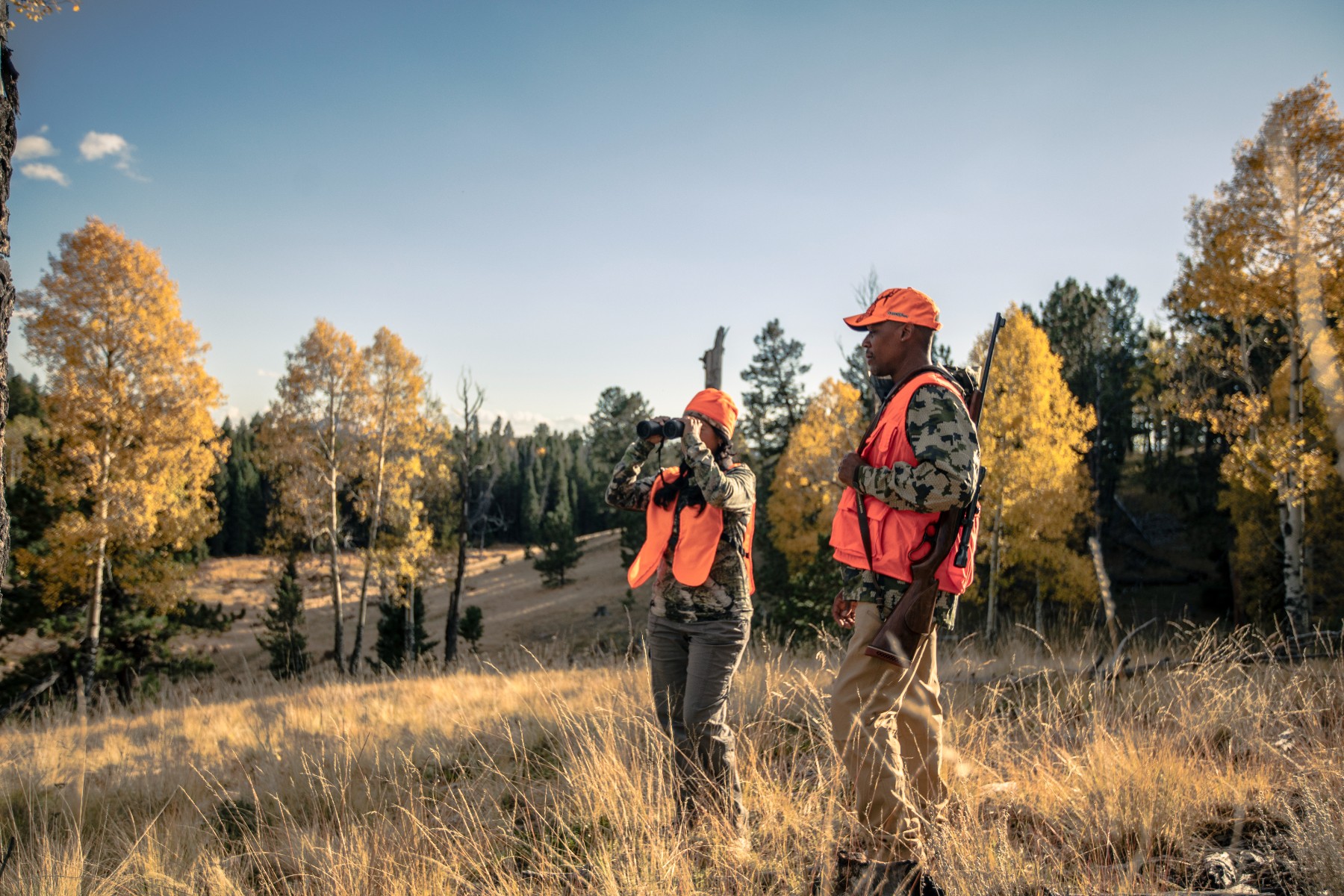Below is a rebuttal op-ed published in the Colorado Sun on August 18, 2023, and submitted by RMEF Director of Government Affairs Ryan Bronson, Patt Dorsey, west region director of conservation operations for the National Wild Turkey Federation and Gaspar Perricone, chair of the Colorado Wildlife Conservation Project and a former Colorado Parks and Wildlife Commissioner.
The legal act of wild game hunting should not be conflated with illegal act of poaching
Patt Dorsey, Ryan Bronson and Gaspar Perricone
Trish Zornio’s opinion piece titled, “Trophy hunts and poaching of Colorado’s big game need to go extinct. Hunters should show some pride,” contained some good points. We agree that poaching or illegally killing wildlife is atrocious and we support Colorado Parks and Wildlife law enforcement officers in this effort.
However, there were more than a few points in Zornio’s essay that need some clarification and just aren’t supported by fact. Statistics and numbers without context or practical understanding can be confusing. So is imprecise language. Zornio combined these to blur the line between poaching and hunting and we hope to bring some clarity.
Colorado has a number of problems, increasing pressure on our public lands, development and habitat loss, a worsening drought and water shortages, a social divide between urban and rural counties, and a forest health crisis. It does not, as Zornio claimed, have a hunting problem.
Hunting in Colorado is conservation; it benefits our rural communities, provides food and it connects us with nature in the most intimate and primal fashion. And yes, perhaps we have not done a great job telling that story, but here are some highlights.
The majority of Colorado Parks and Wildlife’s wildlife funding comes from hunting and fishing license sales and related revenue. More importantly, hunting protects wildlife habitat. Since 2006, Colorado Parks and Wildlife has protected 250,000 acres with wildlife habitat stamp funds, and the department also manages 350 state wildlife areas, protecting another 684,000 acres.
Moreover, nationally hunting supports more than 854,000 jobs. In Colorado, hunting and fishing supports 25,000 jobs. Those jobs include everything from wildlife managers and biologists to waitresses, and local, small-business owners.
Lastly, hunters have more disdain for poaching than the average Colorado resident. The vast majority of violation reports received by Colorado Parks and Wildlife come from hunters directly. Broadly lumping poachers in the company of hunters is like saying drug dealers are the same as pharmacists.
Hunting is highly regulated by state statutes and the Colorado Parks and Wildlife Commission, which annually adopts regulations based on habitat conditions and herd health, so that wildlife populations stay strong. Zorino’s piece seems to dismiss the important role hunters play in sustaining wildlife populations, while conflating the legal act of wild game harvest with the illegal act of poaching.
While there are 960 wildlife species in Colorado that benefit from hunting, only a handful of “game” animals are actually hunted. Activists intentionally place the word “trophy” in front of “hunting” to create an image that “trophy hunters” kill a game animal and take only its trophy parts: antlers, horns, hides, claws, etc., while leaving the meat to rot. They don’t, and such elitist claims are misleading and born from an underlying misunderstanding of wildlife laws. In fact, Colorado law declares that kind of behavior to be “wanton waste” and “willful destruction,” and it’s a felony. Hunters who selectively harvest large and old animals may keep trophies, but they must also consume the bear, lion, deer or elk meat, too.
Any ethical hunter will tell you that their “trophy” is the meals it places on their table. In fact, elk meat harvested in two hunting seasons (2014 and 2015) provided Americans with more than 272 million meals. In addition to feeding their own family and friends, deer hunters nationwide donate 11 million meals annually.
Poaching is socially deviant behavior, and it is criminal. The motivations for poaching don’t vary much from other criminal behavior. Unfortunately, there are bad actors in every crowd.
While Colorado has its problems, it is an incredible state with tremendous biodiversity and magnificent wildlife resources. Those resources are here today because of hunters, not in spite of them. Rather than attacking hunters, we should work together to protect wildlife habitat, secure migration corridors, and give children the gifts of unstructured play and nature appreciation. Let’s build rather than divide our Colorado family.
Theodore Roosevelt said, “The wildlife and its habitat cannot speak. So, we must and we will.” Hunters have been speaking for wildlife in Colorado for more than 125 years, and we welcome others to join us in this effort, whether you choose to harvest a wild meal for your family or not.
(Photo credit: Colorado Parks and Wildlife)
